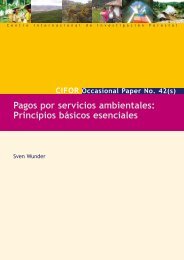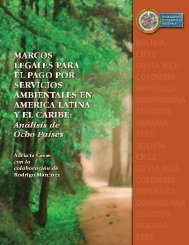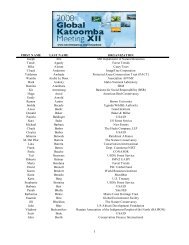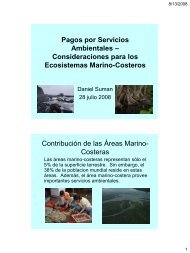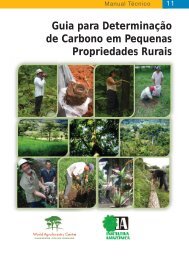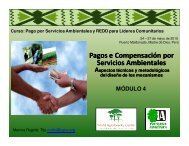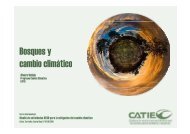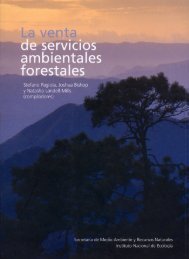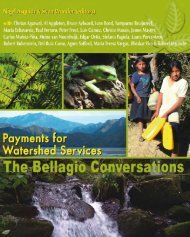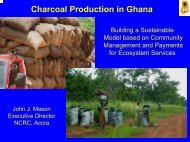Guide on Climate Change and Indigenous Peoples
Guide on Climate Change and Indigenous Peoples
Guide on Climate Change and Indigenous Peoples
- No tags were found...
Create successful ePaper yourself
Turn your PDF publications into a flip-book with our unique Google optimized e-Paper software.
6What advice or recommendati<strong>on</strong>shas the UN Permanent Forum <strong>on</strong><strong>Indigenous</strong> Issues provided <strong>on</strong>REDD/REDD+?• The 7th Sessi<strong>on</strong> of the UNPFII in 2008 hadclimate change as its special theme. To preparefor the discussi<strong>on</strong>s <strong>on</strong> this, two members of thePermanent Forum were appointed as specialrapporteurs to develop a paper <strong>on</strong> the theme.This report is entitled “Impact of <strong>Climate</strong> <strong>Change</strong>Mitigati<strong>on</strong> Measures <strong>on</strong> <strong>Indigenous</strong> <strong>Peoples</strong> <strong>and</strong> <strong>on</strong>Their Territories <strong>and</strong> L<strong>and</strong>s.” 5• This Report elaborated how indigenous peoples are impacted by climatechange <strong>and</strong> by climate change mitigati<strong>on</strong> acti<strong>on</strong>s. As most indigenouspeoples are ecosystem peoples, they are in the fr<strong>on</strong>tlines of the impactsof climate change. The recommendati<strong>on</strong>s included the need to developa human rights based approach <strong>and</strong> an ecosystem approach to solvingthe climate change crisis.Impact of <strong>Climate</strong> <strong>Change</strong> Mitigati<strong>on</strong> Measures <strong>on</strong><strong>Indigenous</strong> <strong>Peoples</strong> <strong>and</strong> <strong>on</strong> Their Territories <strong>and</strong>L<strong>and</strong>s [E/C.19/2008/10]• <strong>Indigenous</strong> peoples do not <strong>on</strong>ly suffer from climate change (a problem of whichthey did not create) but they can also provided soluti<strong>on</strong>s to this problem.• They have dem<strong>on</strong>strated their capacity to adapt to climate change for millennia<strong>and</strong> this is the reas<strong>on</strong> why they are still surviving.• Thus, it will benefit the UNFCCC <strong>and</strong> the world at large if the activeparticipati<strong>on</strong> of indigenous peoples in the global, nati<strong>on</strong>al <strong>and</strong> local processes<strong>on</strong> climate change are ensured.• The final report of the 7th Sessi<strong>on</strong> came up with recommendati<strong>on</strong>s <strong>on</strong>REDD which are in Paragraphs 44 <strong>and</strong> 45 [E/C.19/2008/13].• During COP14 in Poznan in 2008, the integrati<strong>on</strong> of language <strong>on</strong> theneed to respect <strong>and</strong> protect indigenous peoples’ rights in REDD waspushed by indigenous peoples <strong>and</strong> friendly states. The UNPFII Chairspoke at the opening of the COP <strong>on</strong> 2 December 2008 where shereiterated the recommendati<strong>on</strong> from the 7th Sessi<strong>on</strong> of the Forum:PART V: REDD/REDD+ <strong>and</strong> <strong>Indigenous</strong> <strong>Peoples</strong> 57



